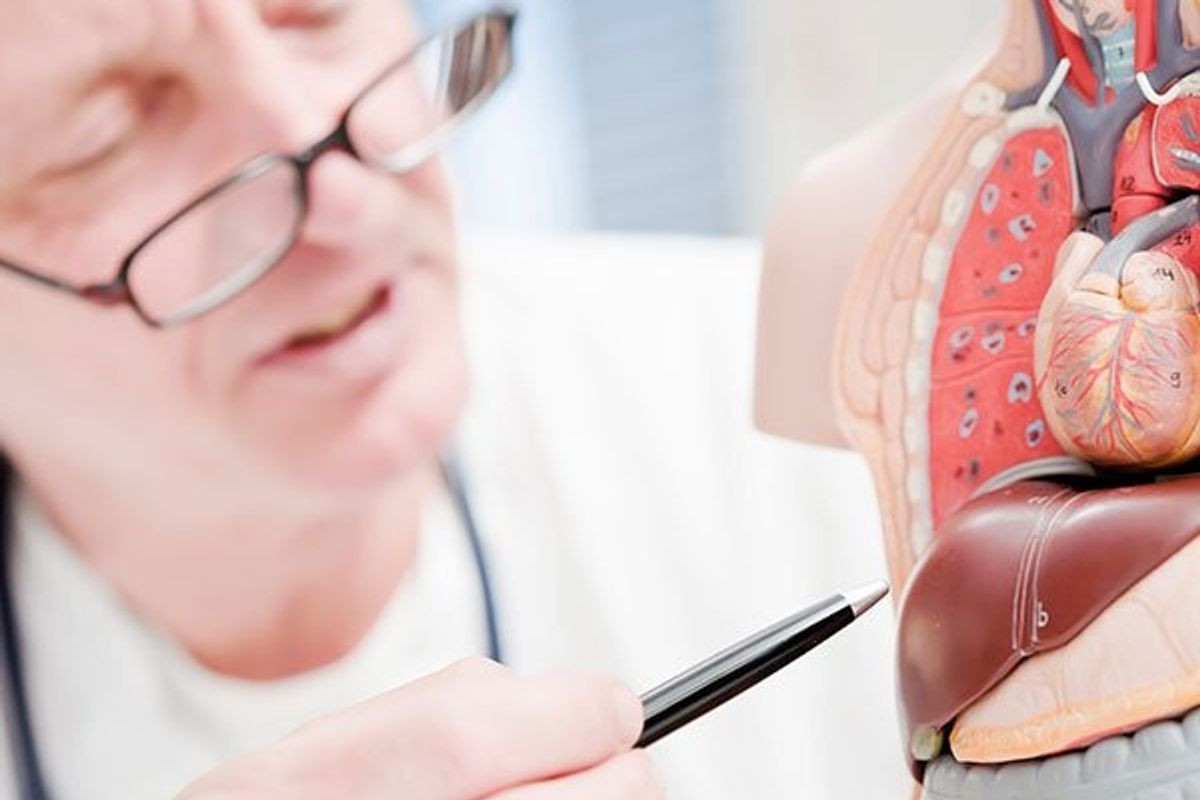By Jennifer Pate, MD
Did you know that October is Liver Awareness Month? While many women across the country are setting aside time to focus on their breast health, October also presents a good opportunity to take ownership of your liver health.
As a physician who treats people diagnosed with liver conditions, I know that liver health is often overlooked in women. The liver is the largest organ in the body, yet 76 percent of people rarely or never ask their doctor about liver health, and 40 percent don't even realize that you need a liver to live.1
In my practice, I suggest that women take the following five LIVER steps to take charge of their health.
1. Learn your risk factors.2
Not all liver diseases are a direct result of alcohol overuse. Risk factors for other liver diseases include the following:
- Being overweight, obese and/or diabetic (non-alcoholic fatty liver disease)
- Having a family member with a genetic disorder of the liver (such as Wilson disease, hemochromatosis or alpha-1 antitrypsin deficiency)
- Long-term use of certain medications or taking certain herbal supplements that may cause liver damage (drug-induced liver injury)
- Having other autoimmune diseases (such as lupus, Sjögren's syndrome or rheumatoid arthritis) that can increase risk for an autoimmune liver disease, such as primary biliary cholangitis (PBC) or autoimmune hepatitis
- High-risk behaviors such as illicit drug use or unsafe sexual practice (hepatitis B or C)
2. Incorporate healthy practices to limit your risk.
- Eat a healthy, well-balanced diet, exercise regularly and maintain a healthy weight.
- Consume alcohol in moderation if you are healthy. If you have a liver disease, I recommend avoiding alcohol.
- Seek help if you have a substance abuse problem.
- Consult your physician before consuming herbal supplements because many can injure the liver and even result in liver failure.
- Discuss your family history of liver disease with your health care professional so that liver disease may be diagnosed early before irreversible damage to the liver occurs.
3. Verify your enzyme levels through a liver function blood test.
Liver function tests reveal a significant amount of information about the health of your liver. Ask your health care professional to perform a simple blood test during your regular physical exam. Keep copies of your lab results so you can monitor your lab results over time.
4. Empower yourself by communicating well with your health care professional.
Begin by identifying the most important two or three questions for your visit and write down these questions. As the visit is nearing an end, try saying, "Doctor, I have three questions I would like to ask today. The first question is…." Even the busiest doctors will often stay in the room for a few brief questions.
If you are having trouble communicating with your health care professionals, tell your doctor openly what your concerns are. Try to work together as a team and identify the correct specialist for any problems.
5. Remember there are plenty of strategies to rely on in the event you do have a chronic liver disease.
- Maintain a healthy body weight by eating a healthy, balanced diet and doing low-impact aerobic exercise several times a week.
- Get adequate rest at night.
- Avoid alcohol and all illicit drugs.
- Recognize symptoms of depression such as feeling sad or down most days for several weeks at a time, crying frequently, having difficulty concentrating, losing interest in activities, feeling hopeless and possibly having suicidal thoughts. Suicidal thoughts indicate a medical emergency.
- Seek sources of support, such as the American Liver Foundation or the PBCers Organization for people with PBC.
- Become your own best advocate by learning about your disease and the prescribed treatment.
- Consult a liver specialist to help determine the best treatment for you.
- Share your story with family and friends.
There has never been a better time to focus on your liver health than now, during Liver Awareness Month.
Jennifer Pate, MD, is Chief of Psychiatry at Baylor St. Luke's Medical Center where she specializes in helping patients cope with chronic illness, including those affected by liver disease.
This resource was created with the support of Intercept Pharmaceuticals, Inc.
For more information, visit www.livingwithPBC.com.
References:
- Intercept Pharmaceuticals, Inc. DOF Reference: GL-PB-MED-00031.
- HealthCommunities.com. Causes and Risk Factors for Liver Disease. Last modified Sept. 24, 2015. Available at: https://www.healthcommunities.com/liver-disease/causes.shtml.







